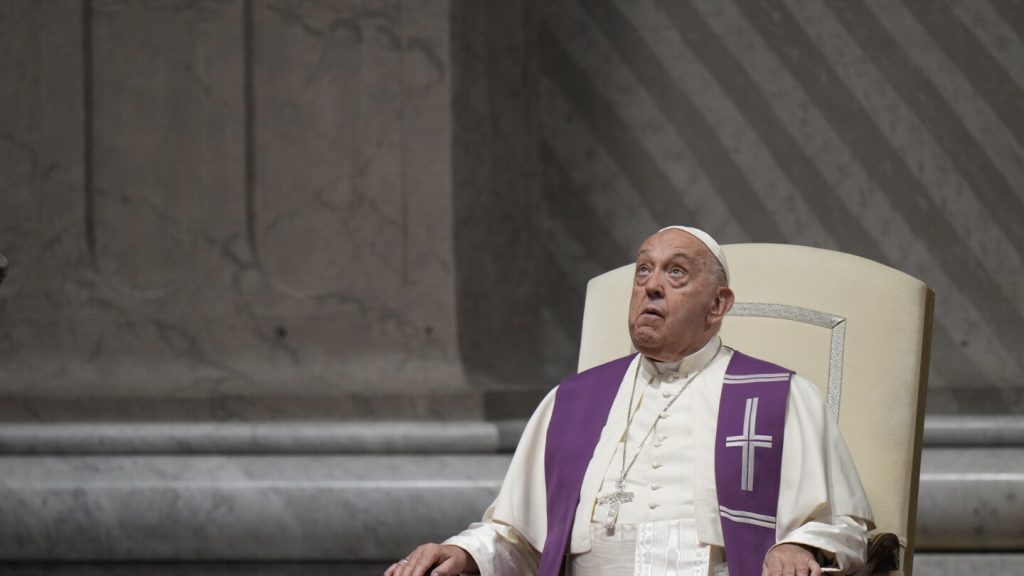Pope Francis initiated the second phase of his Catholic reform project by asking for forgiveness for a range of sins, stating that the church needs to atone for its transgressions in order to regain credibility with the faithful. Following a challenging visit to Belgium where issues such as clergy sex abuse and the treatment of women troubled the pontiff, Francis led top cardinals in apologizing for various wrongdoings, including the destruction of the planet, discrimination against women, and the rejection of migrants. He emphasized the importance of recognizing and rectifying past errors to heal the wounds caused by the church’s sins. The penitential service in St. Peter’s Basilica preceded the start of the synod, a meeting of bishops and lay people to discuss the future of the church, with a focus on calls for women to have greater decision-making roles.
The Vatican organized the vigil service as a way to spiritually prepare for the upcoming meeting, believing that acknowledging sins and seeking forgiveness were essential steps to move forward. During the service, a man who was sexually abused by a priest as a child, Laurence Gien, shared his story with the congregation. He criticized the church for its lack of transparency and accountability in responding to abuse, stating that it had shaken the faith of many. Cardinal Sean O’Malley, an advisor to Pope Francis on child protection strategies, read out a request for forgiveness for the abuse scandal, acknowledging the harm done to vulnerable individuals and the damage caused to the church’s credibility.
O’Malley expressed shame and asked forgiveness for the times clergy members had used their positions to commit terrible sins, taking advantage of the vulnerable while appearing to be safe and protected within the church. The abuse scandal, which has plagued the church for years, has severely impacted the credibility of the Catholic hierarchy in various countries and contributed to declines in faith. It has also led to calls for broader reform within the church to reduce the emphasis on priests and recognize the contributions of ordinary Catholics, particularly women. The crisis has prompted a reevaluation of the church’s structure and practices, with a focus on promoting transparency, accountability, and justice for victims of abuse.
Moving forward, the Catholic Church faces the challenge of rebuilding trust with its followers and addressing the systemic issues that have tarnished its reputation. Pope Francis’s call for forgiveness and acknowledgment of past wrongs is a significant step towards healing the wounds caused by the church’s sins and rebuilding its credibility. The synod, where bishops and lay people will discuss the future of the church, provides an opportunity to address key issues such as the role of women in decision-making and the need for greater transparency and accountability within the church. By confronting its past mistakes and committing to positive change, the Catholic Church aims to renew its mission and reestablish its connection with the faithful.















